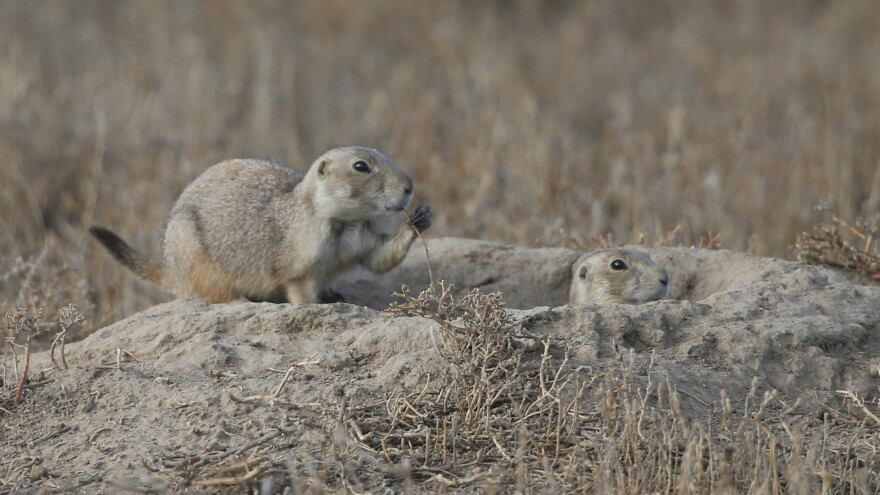Black-footed ferrets have "a lot of hair, big bad teeth and a bad-boy attitude," says Kimberly Fraser. She and other federal wildlife officials are re-introducing the rare creatures to the prairie in a suburb of Denver.
"They're a native species. They belong here," says Fraser, an outreach specialist with a program to re-introduce the ferrets in 12 states from Montana to Texas.
The Associated Press reports that they have just been released at a former toxic waste site in Commerce City, the Rocky Mountain Arsenal National Wildlife Refuge:
"Their new home is a 25-square-mile preserve of short-grass prairie in Commerce City, a northeast Denver suburb. Chemical weapons and pesticides were once manufactured there, but it became a wildlife refuge in 2010 after a $2.1 billion cleanup. ...
"Black-footed ferrets were once thought to be extinct, but a small colony was discovered in 1981 in Wyoming. Researchers have been trying to restore the population since then.
"The long, slender creatures have short legs, appealing faces and an appetite for prairie dogs, which make up 90 percent of their diet. Adult ferrets can be up to 24 inches long and weigh 2½ pounds."
The key factor in the ferrets' survival at the site is whether plague kills off the prairie dogs they eat, according to Pete Gober, coordinator of program.
The Denver Post reports that at least one local landowner is happy with the new neighbors:
"I'm elated. I've worked for almost two decades trying to get natural predators for prairie dogs back on my ranch," [cattle rancher Gary] Walker said.
"Ferrets' elongated bodies and super-sensitive snouts let them slink through tunnels to underground dens while prairie dogs sleep. They clamp their teeth into the prairie dogs' necks like vampires and squeeze before devouring their prey."
Copyright 2022 NPR. To see more, visit https://www.npr.org.




